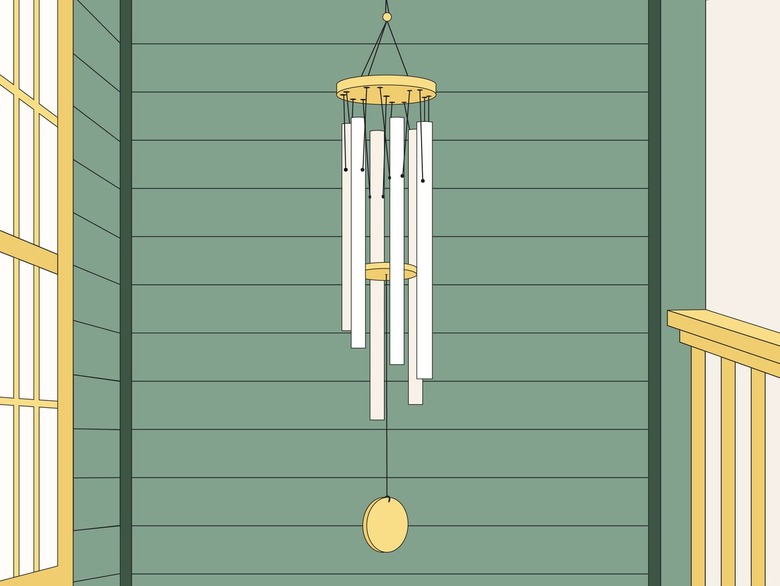Wind Chimes Can Actually Be Used For More Than Their Sounds
There's more to wind chimes than making sound at the touch of a breeze. Some are designed as decor for outdoor spaces, while others are tuned for specific purposes like creating a calming, harmonious chorus of sound as they resonate. The exact purpose is really whatever you have in mind for them, whether it's for decor, for their pleasant sound, or for a bit of each. However, if you're buying wind chimes primarily for decor, still give them a listen to ensure you like the sound — otherwise, you may find yourself being irritated every time the wind blows.
What Are Wind Chimes?
What Are Wind Chimes?
Wind chimes are technically percussion instruments. They're a collection of hanging objects — typically tubes of different lengths, made from metal or wood — that make melodic noise as they bump into one another. They're usually hung up outdoors, where the wind can move the individual parts to create sounds.
The History of Wind Chimes
The History of Wind Chimes
Wind chimes existed in most ancient civilizations, notably in China, where they were originally made from organic materials like bamboo or shells. Eventually, they evolved into collections of metal or wood tubes. In Ancient Rome, they were cast from bronze and called intinnabulum.
Wind chimes' purpose changed from region to region and epoch to epoch. In some cases, they seem to simply be decorative, but in others, they were used to scare off birds from fields (yes, like musical scarecrows). Wind chimes can also have spiritual elements. Many cultures believe the sound of wind chimes can ward off bad spirits and attract benevolent ones.
What Should Wind Chimes Sound Like?
What Should Wind Chimes Sound Like?
There's not necessarily a standard sound for wind chimes — it all depends on the material, size, and how they're tuned. High-quality wind chimes are usually tuned so that each individual chime sounds pleasant and harmonious with the others. On the other hand, low-quality chimes may be bothersome if the individual parts don't properly perform in sync. It's much like playing a piano — playing notes in a chord creates a beautiful sound, while playing a bunch of random notes simultaneously might be cacophonous.
Many wind chimes are tuned specifically to bring a sense of tranquility. Sometimes they're even adjusted to specific frequencies to help create healing effects. Wind chimes can even be tuned to play the notes of a specific song.
No matter what the product literature says about the tuning of wind chimes, it's best to listen to them before purchasing to ensure they resonate with you. Keep in mind that even if you love the sound, your neighbors may not, so consider the placement if using them outdoors.
Wind Chimes and Feng Shui
Wind Chimes and Feng Shui
For followers of feng shui, wind chimes attract positive energy and new opportunities while removing stagnant energy, much as the wind brings with it fresh, cleansing air. The chimes may be placed indoors or outdoors, but you'll definitely want to place them somewhere breezy — that's how you'll get them to produce sound.
For specific feng shui purposes, place the chimes near the main entryway to circulate and improve energy for all aspects of life. Placing them in the northwest area of a home influences travel, while in the north, the chimes are used to positively influence professional experiences. A western placement helps enhance the creativity of children. Placing chimes outside the home in feng shui helps neutralize any outside influences that may negatively affect the home, such as irritating highway noises. They may also be used as a metal element for balance in the garden or landscape.
As for what type of wind chime to use for feng shui, you'll want to look into both colors and materials that are synchronous with the positive aspects you wish to bring into the home. Most feng shui practitioners use metal chimes, as metal represents clarity and joy. Metal is also great for moving energy.
